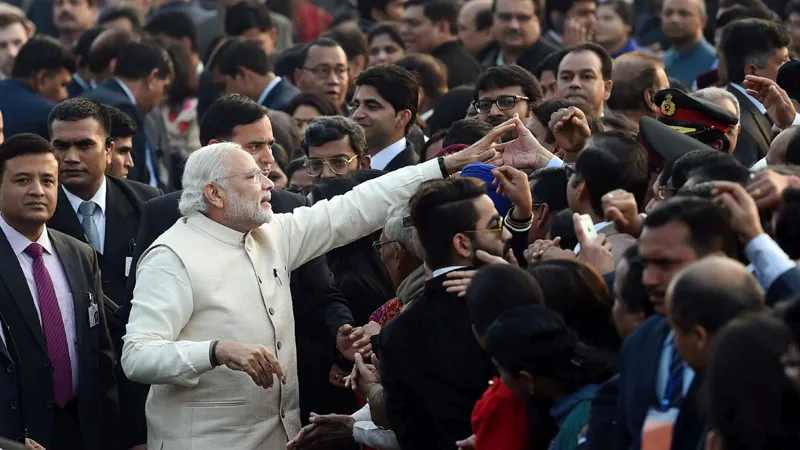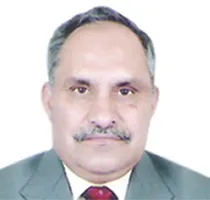There was a time, not so long back, when intolerance had become the flavour of the season and one could be forgiven for having been stymied by the award-wapsi deluge that appeared to have grabbed the eyeballs of all manner of personalities, prominent or otherwise. They had displayed both disgust and disapprobation with Prime Minister Narendra Modi for his apparent inability to either control or condemn the hot-heads supposedly creating the problem. Even more bewildering was the continuous media coverage that this issue appeared to have attracted, especially its untrammelled coverage of rabid fundamentalists of all hues. We are now witness to the possibility of some of these same eminent persons re-accepting their awards.
There is no gainsaying the fact that our democracy gives each and every awardee, not just eminent personalities, the freedom to decide which awards to accept, which to return and which to re-accept after having returned, based on their conscience. While, undoubtedly, the symbolism of such a protest must be respected and given due consideration, they are bound to lose some of its sheen if such actions appear to be biased, lacking substance or even misguided.
In the present instance, to assume that intolerance and hate crimes are a recent phenomenon which can directly be attributed to the rise of the BJP and its so-called Hindutva brigade is fallacious in the extreme. As veteran journalist and author Anand Ranganathan accurately pointed out, both in a recent article in News Laundry, an online media platform, and on Twitter, the 57 communal incidents that occurred every month between 2011-2013 did not attract the kind of ire we witness today. Nor had we seen such outrage when Kashmiri Pandits were forced to flee the valley in 1989 or even earlier after the anti-Sikh violence in 1984.
Nor were such hate crimes restricted to attacks by member of any one community or religion, as Bangladeshi author Taslima Nasreen, learnt to her cost when she was attacked by MLAs belonging to Mr. Asaduddin Owaisi’s party, the All India Majlis-e-Ittehadul Muslimeen, during a literary event in Hyderabad in 2007. Similarly, Mr Sanal Edamaruku was hounded out of this country by the Catholic Secular Forum in 2012. He was found guilty of heresy, for stating that what was considered a miracle by the faithful in Mumbai, when the toes of a statue of Jesus Christ were found to be dripping water, was a rational and scientific phenomenon. That he is still forced to stay in Finland, with little outcry on the part of those leading the present protests or on the part of the media does indicate strong biases at work or a dangerous form of amnesia.
Also consider the case of the Film and Television Institute of India, where the Government’s appointment of Mr Gajendra Chauhan as chairman has come in for much criticism, including student protests and the return of national awards by some eminent film personalities. There was certainly a time when the FTII was considered the pre-eminent institute of its kind in Asia, which is regrettably no longer the case. Let alone the appointment of a politically-connected television actor as chairman, the fact is that an institute responsible for enabling artistic and creative excellence, continues to have a mere generalist officer of the Indian Information Service as its executive head. In all probability, the systemic problems faced by FTII due to cumulative neglect over the years found expression and erupted in a final denouement with the appointment of Mr Chauhan.
One can, therefore, fully understand and appreciate the frustrations expressed by the students, for whom the chairman’s appointment was the final straw that tipped the scales. While all have the right to protest against this state of affairs and aspire for change, it can be nobody’s case that such politically motivated appointments, in Government controlled establishments of learning, are restricted to just the current dispensation and has no precedence. That would be patently untrue and such interference has been the norm for decades. In fact, this is just the kind of issue that Mr Modi was voted to correct and improve.
All of this raises one fundamental question: Is there a case for retaining state control over cultural institutes and is it the Government’s job to institute awards for excellence or distinguished service? In most fields of endeavour, be it literature, science, the arts or even sports, the pre-eminent awards such as the Nobel Prize, the Oscars, the Grammy Awards and the Olympic medals, are awarded by institutions that are independent of Government.
As we have seen over the years, nomination for almost each and every award instituted by our Government has come in for its fair share of criticism and controversy, including numerous interventions by the judiciary. To suggest that our system is biased, wholly lacking in transparency and open to influence and networking between loyalists and friends, thereby smacking of vested interests, is an understatement.
India is at a stage where Soviet-style intervention by the Government and state patronage is no longer necessary or advisable. The Government needs to do away with most awards, except possibly those awarded for bravery and distinguished service, if at all. Above all, the host of ‘Akademies’ in the fields of art, literature, music, theatre, film and dance must be wholly removed from the Government’s ambit. They must necessarily be established and run as registered private organisations, much like the Board of Control for Cricket in India.
Mr Modi must fulfil the promises he made during his campaigning, of ushering in ‘minimum Government, maximum governance’. Till then, the question of awards remains a prickly thorn in the body politic.
This article originally appeared in The Pioneer.
The views expressed above belong to the author(s). ORF research and analyses now available on Telegram! Click here to access our curated content — blogs, longforms and interviews.




 PREV
PREV


